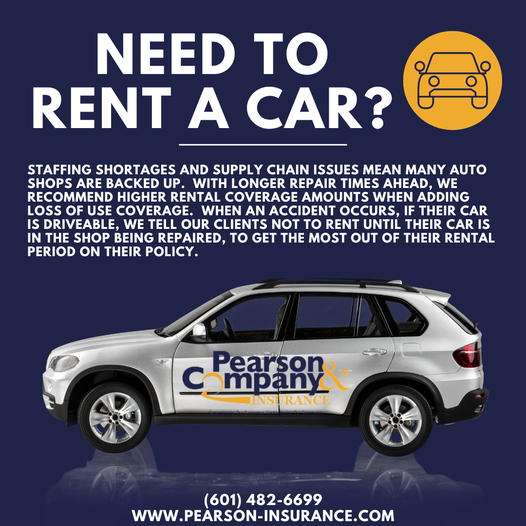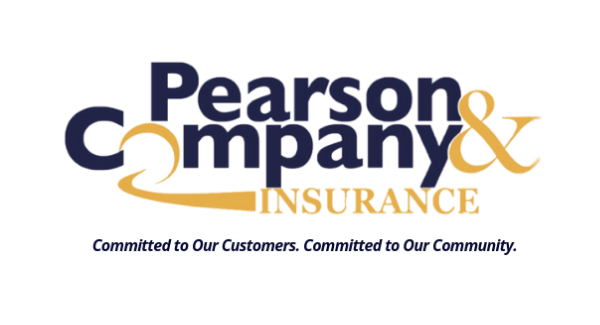How Insurance can Help your Business
Running a small business can be hugely rewarding, but many times, it can be downright dangerous with so many different types of risks facing businesses today.
And some of these potential risks could ultimately destroy your business, while others could cause serious damages that are costly and time consuming to repair.
Unfortunately, many business owners don’t fully understand their potential risks and make the mistake of building a “ best case scenario ” business plan. This type of plan is like building a house of cards – one gust of wind and the entire business can come crashing down.
However, with a little preparation and the right Insurance Advisor, you can moderate the risk’s impact, if and when it becomes a reality.
The first step in implementing a comprehensive risk management plan is identifying potential risks. To help you get started, we have provided a list of 9 common threats small business owners face on a daily basis.
As you read through the list, consider the unique risks facing your business and ask yourself whether those risks are being managed effectively.
1. Protecting your property
Property owned by a small business is often the largest asset, therefore, for the long-term security of your small business, it’s vital that you evaluate potential threats to your property and develop a plan to manage those risks.
Begin by taking a complete inventory of all your assets to determine how a loss might affect your business and how much coverage you need.
Property Insurance coverage can come in many forms to suit your specific needs, but a typical policy will provide the replacement cost value for your building and the actual cash value for your contents.
Don’t make the mistake of planning for the “ best case scenario ” when it comes to your property coverage. Leaving your small business underinsured is a risk many small business owners live to regret.
2. Business interruption
The U.S. Department of Labor estimates that more than 40% of businesses never reopen following a disaster such as a fire or flood.
Is your business prepared to weather the storm if disaster strikes?
If a fire causes your business to be temporarily unusable, what would you do?
Ideally, you would move to a temporary location while your permanent place of business is being repaired, but traditional Property Insurance does not cover this move, or the loss of income while the permanent business location is being repaired.
Ill-prepared businesses are often forced to completely shut down operations during repair, which can do irreparable damage to their brand, and leave employees without work for extended periods of time.
To mitigate this risk, consider adding Business Interruption coverage to your Property Insurance policy. This invaluable, though often overlooked, coverage safeguards your business by covering operating expenses and lost income while the permanent business location is being repaired. This will allow you to maintain payroll and, if needed, reallocate current employees to help with the cleanup effort.
3. Liability losses
No matter how well you plan, running a small business can be fraught with unexpected surprises – the only way to avoid all liability is to close your business entirely.
Smart business owners do the next best thing: protect their assets by carrying adequate Commercial General Liability (CGL) Insurance coverage.
CGL policies provide coverage for claims of bodily injury or other physical injury, personal injury (libel or slander), advertising injury and property damage as a result of your products, premises or operations.
A CGL policy with adequate coverage limits enables you to continue normal operations while dealing with real or fraudulent claims of negligence or wrongdoing, and also provides coverage for the cost of defending and settling claims.
4. Key person losses
Many small businesses are built around the talents and expertise of a few individuals.
If an employee crucial to the functioning of your business departs unexpectedly due to death or injury, would day-to-day operations continue as usual or would disorder and uncertainty ensue?
Would you be able to maintain your current level of performance and current revenue stream?
How would you cover for the financial loss of the employee or pay for a temporary replacement during his or her recovery?
Key Person Insurance can help you answer these questions with confidence. This coverage is designed to provide financial stability in a time of stress and uncertainty, allowing you to keep your business moving forward without missing a beat.
5. Injuries to employees
Small business owners, especially those with less than 10 employees, often struggle with understanding their employee health and safety obligations. Just like their larger counterparts, small businesses have the same responsibility to indemnify workers who are injured or become ill during the course of their employment.
Many businesses don’t realize the full effect workplace accidents have on their organization. Beyond initial treatment costs and lost production time, on-the-job injuries have an impact on insurance premiums, which can increase your costs for years to come.
Thankfully, by managing exposures and promoting safety, it’s possible to control workers’ compensation and Employers Liability premiums.
Having the proper pre- and post-accident procedures in place can drastically reduce the severity of a workers’ compensation claim, and implementing a comprehensive safety program can reduce the accident rate. Together, these two steps can produce tremendous long-term savings.
6. Managing electronic data and computer resources
Small businesses often lack a formal IT department or even rudimentary internet security measures, which leaves them vulnerable to unscrupulous cybercriminals searching for an easy target.
With an estimated liability of more than $200 per compromised record (multiplied by hundreds or thousands of customer records), the cost of a single data breach incident can be devastating for a small business.
If your business stores customer records electronically, it’s crucial that you have robust security measures in place.
In addition to taking preventative measures to reduce Internet-based exposures, specialized technology coverage, such as Cyber Liability Insurance , can help protect your business against damage from cyber-attacks, data breaches and other Internet-based exposures.
In today’s digital business environment, if you store customer or employee data, accept credit card payments, have a website, or use an email address, you have a cyber exposure… and you need Cyber Liability Insurance.
7. Employment Practices
From the moment you begin thepre-hiring process until the final goodbyes at the exit interview, you’re at risk for a lawsuit.In fact, three out of five employers will be sued by a prospective, current or former employee while they're in business.
Although many lawsuits are groundless, the defense process alone is hugely expensive and time-consuming.
Your business should seriously consider whether it can afford to defend itself against accusations of wrongful employment practices.
If not, there are insurance solutions, for example, Employment Practices Liability Insurance which will protect your company against wrongful termination, discrimination (age, sex, race, disability, etc.) or sexual harassment lawsuits.
8. Contracts
When first starting out, many new business owners simply don’t have the time or expertise to adequately evaluate each clause in everything they’re signing.
This oversight, however, can create major problems down the road. In many cases, small businesses become saddled with large additional risks, accepted via risk transfer from savvy suppliers or customers.
While it’s tempting to shave costs by skimping on legal fees, making sure your business isn’t accepting additional and unnecessary risk can save you a lot of money over the long haul, both in legal costs and in insurance coverages.
9. Manage your supply chain
Do you rely on one or more third-party suppliers to produce certain components used in your products? If you do, a disaster that interrupts your supplier’s regular business operations could have a crippling impact on your production abilities.
Although you should always try to minimize potential liability through contingency planning and other risk management techniques, as supply chains grow across the globe, sometimes there’s little you can do about the exposures faced by your suppliers.
In a perfect world, you could simply avoid doing business with companies that present numerous risks or that are unwilling to conform to your standards, but pricing constraints and niche markets limit the number of potential suppliers to choose from.
Supply chain insurance is meant to cover losses you incur as a result of an interruption to your supply chain. Such coverage allows you to work confidently with suppliers who face exposures beyond your control.
Curious about what you can do to prevent Cyber Crime?
Get the right coverage for your business
Don’t build a house of cards by simply hoping for the best – prepare your business for the worst case scenario.
Our Insurance Advisors can help you identify your potential risks, and structure a comprehensive risk management and insurance plan to protect your business while never losing sight of your budget.
Insurance is a key component of any comprehensive risk management plan, but successful risk management also involves prevention, training and contingency planning.
For additional questions on your risks and exposures, or on appropriate coverages to protect you from liability or costly disputes, Request a Proposal or give us a call.





Contact Information
Business Hours
- Mon - Fri
- -
- Sat - Sun
- Closed
Quick Form
Contact Us
Thank you for contacting us.
We will get back to you as soon as possible.
Please try again later.
Contact Information
Business Hours
- Mon - Fri
- -
- Sat - Sun
- Closed
Contact Us
Contact Us
Thank you for contacting us.
We will get back to you as soon as possible.
Oops, there was an error sending your message.
Please try again later.
Browse Our Website
Contact Information
Business Hours
- Mon - Fri
- -
- Sat - Sun
- Closed


